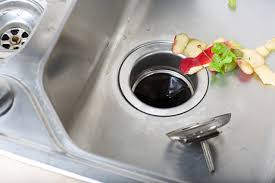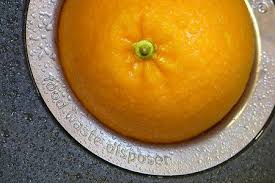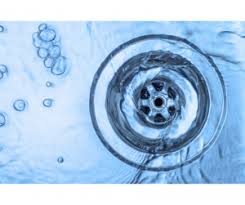Preventative Maintenance for Your Garbage Disposal
Anyone who’s had their garbage disposal break down knows the hassle that this small appliance causes when it stops working. Often this happens when people don’t understand the correct way to use it. Here are some basic dos and don’ts that will help you keep your garbage disposal clean and in good condition and save you money on repairs or replacements.
Garbage Disposal Dos:
- Use cold water. Keep a steady flow of cold water during and after every use. Keep the flow going for approximately 15 seconds after grinding has ceased to ensure that the food washes through. Hot water can cause fat to conceal and stick to the blades and interior. Also, cold water helps keep the unit from overheating.
- Clean with ice. Occasionally put a small amount of ice into the garbage disposal and run it to keep the unit clean. Make sure you put the rubber stopper over the opening before you run it to keep ice pieces from flying out.
- Clean with de-greaser. Use a disposal cleaner or generic de-greaser occasionally to keep fat from building up. This will help with the unit’s efficiency and eliminate odors.
- Clear the drain. It’s good to have the drainage pipe snaked approximately once every two years to prevent clogs and keep the sink draining smoothly.
- Use citrus as a freshener. You can grind up citrus peels from lemons, limes, oranges, etc. to keep the disposal smelling fresh. The natural acid also hinders bacterial growth.
Garbage Disposal Don’ts:
- Avoid hot water during grinding. It’s perfectly fine to run hot water in your sink after you’re done using the garbage disposal, but always use cold water during the grinding process. As stated above, hot water can make fats congeal and stick to the blades and interior of the unit.
- Don’t run grease, fat, pasta or fibrous waste through. These materials will clog the drain. Dispose of them through solid waste channels. This includes tough plant fibers such as celery and potato skins. Pasta is notorious for clogging garbage disposals.
- Don’t fill the disposal. If you have a lot of food waste to grind up, make sure you do it gradually. If you cram the disposal full, don’t be surprised if it can’t handle the load.
- Don’t use harsh cleaning chemicals. These can cause harm to you, the plumbing system, and the environment as they flow through.
- Only grind food. Don’t expect the garbage disposal to be able to handle paper towels, rags, plastic, or other non-edible materials.

Do the Following to Maintain a Clog-Free Disposal
- Lots of water! The simplest way to avoid a clog is to make sure you flush the disposal with plenty of water when it is grinding up food waste and then for 30 seconds afterward. Then occasionally maintain your disposal by regularly grinding up pieces of lemon or orange peel and ice cubes.
- Use dishwashing detergents that de-grease your dishes. Grease is the ‘glue’ that holds bacteria causing odors in your drain pipes and adds to the likelihood of the slow draining clogs you want to avoid.
- Avoid grinding up potato peelings, banana peels, coffee grounds or eggshells as described above.
By following these simple tips you will help keep your garbage disposal trouble-free, sanitary and clean smelling.

NEVER Put These Items down the Garbage Disposal:
- Glass, metal, plastic, or paper (including cigarette butts, fruit stickers, string ties, etc.).
- Grease, oil, or fat (including meat fat and cheese). Put your grease in a metal or glass container and either save it for reuse or throw it out in the trash.
- Stringy, fibrous, or starchy vegetables (celery, corn husks, artichokes, onion skins, potato skins, etc… small amounts are probably fine, but it’s best to avoid these tough vegetables).
- Pasta or rice (foods that expand when water is added).
- Hard stuff (bones, pits, and seeds… although small fish and chicken bones are OK).
- Large amounts of anything (large amounts of anything will cause a garbage disposal clog).

ELIMINATING FOUL ODOR COMING FROM A GARBAGE DISPOSAL
Foul odors can occur from a buildup of food debris within your garbage disposal. To eliminate this unpleasant odor, you can place ice cubes and lemon or orange peels in your disposal. Then run the disposal for about 30 seconds, after that squirt a little liquid dish detergent into the disposal while it is still running. Finally, run cold water for about 30 seconds to rinse all the debris away.
Garbage Disposal Care
How to clean your disposal and a comprehensive list of what you can or cannot put in it
Whether you are a long time garbage disposal user, or have just chosen your first ever disposal, knowing how to care for it will go a long way to making your experience a good one. Garbage disposals are valuable household tools, when used properly. If you are careful with what you put through your disposal, and keep it clean, it should provide you with many years of carefree service. Many of the common frustrations users experience can be avoided by following just a few tips.
Help! It Stinks!
A common garbage disposal complaint is bad odors. This is often due to a failure to run enough water through and ensure everything is adequately flushed out. To keep your disposal fresh and clean, consider the following tips:
- Grind Thoroughly – Make sure you allow adequate time for everything to get ground and flushed with water. Leftover particles cause odors.
- Clean Regularly – At least once a week, take a bottle brush and scrub inside the disposal. This small maintenance step will go a long way to keeping it fresh.
- Grab Citrus – Fresh orange, lemon, or limes can help cut grease and eliminate odors. Simply grind pieces in the disposal.
- Vinegar is Good – Freeze some vinegar in ice cube trays and blend in the disposal. This helps to eliminate bacteria which can cause odor.

Recent Comments